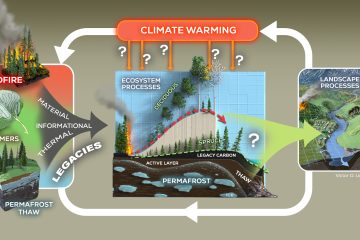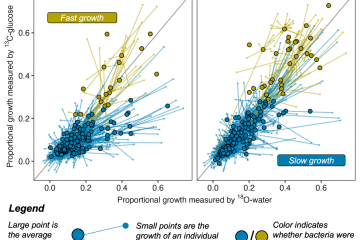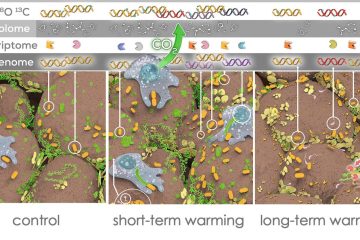A meta-analysis of 1,119 manipulative experiments on terrestrial carbon-cycling responses to global change
Direct quantification of terrestrial biosphere responses to global change is crucial for projections of future climate change in Earth system models. Here, we synthesized ecosystem carbon-cycling data from 1,119 experiments performed over the past four decades concerning changes in temperature, precipitation, CO2 and nitrogen across major terrestrial vegetation types of the world. Most experiments manipulated single rather than multiple global change drivers in temperate ecosystems of the USA, Europe and China. The magnitudes of warming and elevated CO2 treatments were consistent with the ranges of future projections, whereas those of precipitation changes and nitrogen inputs often exceeded the projected ranges. Increases in global change drivers consistently accelerated, but decreased precipitation slowed down carbon-cycle processes. Nonlinear (including synergistic and antagonistic) effects among global change drivers were rare. Belowground carbon allocation responded negatively to increased precipitation and nitrogen addition and positively to decreased precipitation and elevated CO2. The sensitivities of carbon variables to multiple global change drivers depended on the background climate and ecosystem condition, suggesting that Earth system models should be evaluated using site-specific conditions for best uses of this large dataset. Together, this synthesis underscores an urgent need to explore the interactions among multiple global change drivers in underrepresented regions such as semi-arid ecosystems, forests in the tropics and subtropics, and Arctic tundra when forecasting future terrestrial carbon-climate feedback.


